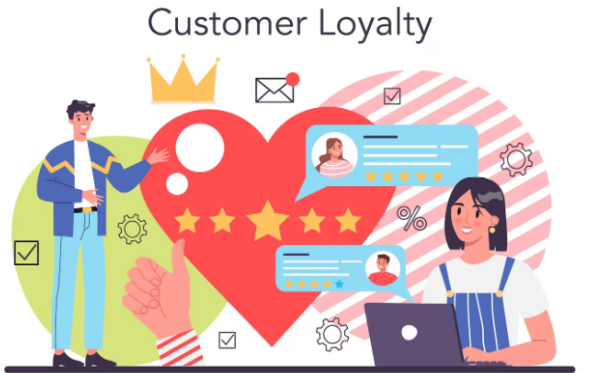
Topic: Emotional Branding
It’s all about making a brand special and personal to people who purchase it. Brands that truly work are the ones that get into people’s hearts and make them feel something. Emotional branding is similar to how best brands don’t sell things; they build entire communities of people who identify with their brand.
What Is Emotional Branding and Why It Matters
Emotional branding is all about appealing to individuals’ feelings rather than their rationality. It goes directly to the center of what people really want, dream, remember, and treasure. It’s about reaching hearts deeper, where you feel you’re not just buying something, but you’re part of a story.
They’ve got something that means a great deal to them, it’s something huge to them. It’s something huge, something that represents who they are and what they believe in. It becomes like a trusted friend, a reflection of your real self, or something that uplifts your mood.
Why Emotional Connections Outlast Discounts
Price may catch your attention, but it’s the overall feel that brings people back for more. It hits at just what people are seeking, creating a bond that resonates with them long after they are past buying it. That’s the genuine article. What matters most is how it gets to people, and not necessarily the minute stuff. Most people don’t actually care about the emotional aspect, but that’s really the big deal here.
That’s what matters most they’re there for good. When people become very attached to a brand, they’ll go the extra mile to tell people about it, blog about it online, or come to its defense when it is being battered. When the chips are down, such as when prices rise or there’s a misstep, customers who truly feel a connection are less agitated and remain loyal.
Ingredients of Emotional Branding
It’s not about fooling people; it’s about being authentic and truly connecting with them on a level that matters. Brands make us feel like we’re in their world.
Storytelling That Resonates:
It’s the genuine, emotional experiences that make emotional branding seem real, like when someone shares with us their difficult times or a happy moment; these stories make brands truly resonate with us. Big companies like Amazon or Google have been speaking about how they are making our lives simpler and more connected.
Purpose Beyond Profits:
This link is not about selling stuff; it’s about connecting with people with similar beliefs and making the world a better place.
Consistency of Personality:
A brand that completely resonates with us, such as Zomato making us laugh, Apple being relaxed and effortless, or Amul making us all feel extra warm and cheerful.
Customer-Centric Experiences:
When individuals feel like the brand is listening and is concerned with them, they begin to actually engage with it. All those little moments—like personalizing, wrapping them up in a pretty package, writing a note by hand, or responding promptly—they all count for a lot.
Actual Brands Winning With Emotion
Let’s take a peek at which brands are actually great at reaching the feels.
Dove: Dove broke away from the conventional standards of beauty by naming the common stereotypes. Their “Real Beauty” campaign was a revolution; they used real women and not merely flawless models, and it actually made people fall in love with themselves. That super-touching message totally swept the fans off their feet and got them totally addicted to the brand.
Tata Group:
In India, Tata is not a brand, it’s a legacy of trust and integrity. Whether it’s Tata Salt or Tata Motors, everyone’s speaking about it because it’s just, it’s useful, and it’s a way to show love to our country.
Cadbury Dairy Milk:
Cadbury is not a chocolate bar but a hug of memories, a burst of happiness, and a taste of those fun, happy days that all the people in India remember with love. Their advertisements do not sell chocolate but sell the feeling of good times, happiness, and moments of fun.
Challenges in Emotional Branding
Emotional branding is not a Band-Aid solution—it’s maintaining it and creating a connection that becomes stronger over time. Here are a few obstacles brands need to overcome:
If people feel like the brand’s just manipulating emotions to sell stuff, it won’t cut it.
Brands truly must walk their talk and follow through on their commitments. If a business isn’t being transparent about their environmentally friendly initiatives, their green agenda message will not actually connect with consumers.
As tastes and attitudes shift among people, what actually gets them emotionally charged may also shift. A brand must constantly rejuvenate but remain true to its fundamentals.
Creating a strong emotional bond with customers is rather like fostering a close relationship. You’ve got to invest everything in it, stay tuned, and commit.
Conclusion
It’s all about connecting with people at a real level, reaching their hearts in a way that goes beyond selling things.
When brands truly engage with their customers, they click on another level and behave authentically, and that creates a trust-based loyalty, who you are, and how you feel, and not necessarily about shelling out some dough.
💬 Frequently Asked Questions (FAQs) on Emotional Branding
- What is emotional branding?
Emotional branding is a strategy that focuses on building a deep emotional connection with consumers, making the brand feel more personal, human, and relatable—beyond just products or services.
- Why is emotional branding more effective than traditional advertising?
While traditional ads highlight product features, emotional branding resonates with people’s feelings, values, and identities—leading to stronger, longer-lasting loyalty.
- How does emotional branding influence customer loyalty?
Customers connected emotionally to a brand are more forgiving, more loyal during crises, and more likely to advocate for the brand, regardless of pricing or competition.
- Can emotional branding work for small businesses?
Absolutely. Authentic storytelling, meaningful engagement, and consistent messaging can help small brands form powerful emotional ties with their audience.
- What are the key ingredients of emotional branding?
The core elements include storytelling, purpose-driven messaging, brand consistency, and customer-centric experiences.
- How does storytelling support emotional branding?
Stories create empathy and connection. When brands share relatable, human experiences, they engage emotions that help customers remember and relate to the brand.
- Is emotional branding suitable for B2B brands?
Yes. Even in B2B, decision-makers are people. Brands that build emotional trust and align with company values tend to perform better in long-term relationships.
- What emotions do successful brands usually tap into?
Common emotional triggers include happiness, nostalgia, trust, belonging, inspiration, love, and even urgency or fear, depending on the message and market.
- How does emotional branding affect purchasing decisions?
According to neuroscience and behavioral studies, people often make buying decisions emotionally and then justify them rationally. Emotional branding influences this first trigger.
- Why do people stay loyal to emotionally strong brands?
Because these brands often reflect the consumer’s identity or beliefs. They feel understood, valued, and emotionally invested—making them less likely to switch brands.
- Can emotional branding be measured?
Yes. It can be evaluated through customer sentiment analysis, Net Promoter Scores (NPS), engagement metrics, and repeat purchase behavior.
- What happens if emotional branding feels fake?
It backfires. If consumers feel manipulated or sense inauthenticity, trust erodes quickly. Transparency and consistency are crucial.
- How can brands maintain emotional connections over time?
Brands need to evolve with their audience while staying true to their values—through consistent communication, responsive customer service, and meaningful interactions.
- Are there cultural factors in emotional branding?
Yes. Emotions and values vary across cultures. In India, for example, emotional branding often taps into nostalgia, family, tradition, and pride.
- What are some Indian brands that excel in emotional branding?
Examples include Tata, known for trust; Amul, known for warmth and wit; and Cadbury Dairy Milk, which evokes joy and togetherness.
- What role does customer experience play in emotional branding?
Every interaction—packaging, service, tone, timing—contributes to how customers feel about a brand. Small, thoughtful gestures often leave lasting impressions.
- How do brand values influence emotional branding?
When a brand stands for something meaningful—sustainability, inclusivity, social causes—it attracts like-minded customers who emotionally align with those values.
- Can emotional branding work without big budgets?
Yes. Authenticity costs nothing. Honest messaging, real stories, and personalized experiences are more powerful than expensive ad campaigns.
- How should new brands start with emotional branding?
Begin by defining your purpose, values, and story. Then, build every customer touchpoint around these core emotional drivers—from your content to your customer support.
- Is emotional branding a trend or a long-term strategy?
It’s a long-term strategy. Emotional branding builds durable relationships, trust, and loyalty—making it a sustainable advantage in any industry.
References
Gobé, M. (2009). Emotional Branding: The New Paradigm for Connecting Brands to People. Allworth Press.
– A foundational book that introduced and popularized the concept of emotional branding.
Harvard Business Review. (2015). The New Science of Customer Emotions
– A data-driven look at how emotions influence buying decisions and brand loyalty.
Journal of Consumer Research. (2003). Affect and Consumer Behavior: Investigating the Impact of Emotions on Decision-Making.
– In this academic paper, the influence of emotional states on buying behavior is explored.
Forbes. (2021). Why Emotional Connection Is Required for Brand Loyalty
– A business-oriented article that discusses the strategic advantages of emotional branding.
Penned by Vikash Kumar
Edited by Sneha Seth, Research Analyst
For any feedback mail us at [email protected]
Transform Your Brand's Engagement with India's Youth
Drive massive brand engagement with 10 million+ college students across 3,000+ premier institutions, both online and offline. EvePaper is India’s leading youth marketing consultancy, connecting brands with the next generation of consumers through innovative, engagement-driven campaigns. Know More.
Mail us at [email protected]
